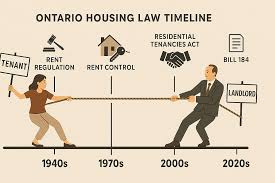The real estate industry, once dominated by in-person meetings, paper contracts, and physical property tours, has experienced a major shift toward digital platforms. With advances in technology, changing consumer behavior, and the need for greater convenience, online real estate transactions are becoming increasingly popular. Buyers, sellers, and agents now have access to tools that simplify the process, expand market reach, and streamline every stage of a deal. Below are some of the key ways real estate transactions are gaining traction online.
Virtual Property Tours and 3D Imaging
One of the most significant developments is the rise of virtual property tours. Instead of traveling to multiple homes, potential buyers can explore listings online through high-resolution photos, 360-degree videos, and interactive 3D models. Platforms like Matterport have made it possible for users to “walk” through a home digitally, inspecting rooms and layouts in detail. This trend not only saves time but also allows buyers from different cities or even countries to view properties without physically being there. For sellers, virtual tours increase visibility and can generate more qualified leads.
Online Marketplaces and Listing Platforms
Websites and apps such as Realtor.ca, Redfin, Trulia and, of course, ApartmentListing.ca have transformed how people search for homes. These platforms aggregate listings, provide neighborhood insights, and include features like mortgage calculators and price history analysis. Buyers can filter by location, budget, and amenities, making the search process more efficient. Sellers benefit by reaching a wider audience than they might with traditional local advertising. These marketplaces have become the starting point for most home searches, underscoring the growing preference for online engagement.
Digital Communication and Collaboration Tools
The days of constant phone calls and office meetings are fading. Instead, real estate agents and clients now rely heavily on video conferencing tools like Zoom, WhatsApp, and FaceTime to conduct consultations, negotiations, and even remote property viewings. Cloud-based collaboration platforms such as Google Drive and DocuSign allow documents to be shared and signed electronically, speeding up what was once a lengthy paperwork process. These tools help streamline communication, reduce delays, and improve overall efficiency.
Online Mortgage Applications and Financing
Financing is another area that has shifted online. Many banks, credit unions, and fintech companies now allow buyers to apply for mortgages digitally. Applicants can upload documents, check credit, and receive pre-approval within hours, all without stepping into a bank branch. Some platforms also use AI to match buyers with the most suitable loan products. This trend has accelerated in recent years, as buyers increasingly demand quicker, more transparent financing options that can be managed from their smartphones.
Blockchain and Smart Contracts
Blockchain technology is introducing new possibilities for secure and transparent real estate transactions. With smart contracts, agreements can be executed automatically once certain conditions are met, reducing the need for intermediaries and minimizing fraud risk. One of the pioneers and leaders in this industry is OwnSpace.com. ”OwnSpace was started in 2017 to elevate the real estate shopping experience both online and in physical sales offices. We have evolved into a suite of tools to help builders provide a tailored experience while improving their internal processes and growing their business. Today, we are a bridge for developers and homebuyers to build better properties together.” Tokenization of property is another emerging concept, allowing investors to buy fractional ownership in real estate through blockchain platforms. While still in its early stages, this approach is making real estate more accessible to a wider pool of investors and could redefine property ownership in the future.
Social Media Marketing and Networking
Social media platforms have become powerful tools for real estate professionals. Agents are increasingly using Instagram, Facebook, TikTok, and LinkedIn to market properties, showcase success stories, and engage with potential clients. Live video tours and targeted ads help listings reach a more specific and active audience. Social media also fosters trust and connection, as buyers can follow an agent’s content and feel more comfortable reaching out when ready to make a move.
Online Closing Services
Traditionally, closing a real estate deal required multiple in-person meetings at a title company or attorney’s office. Today, online closing services allow buyers and sellers to review and sign documents digitally, sometimes even with the assistance of remote notaries. Again companies like OwnSpace.com can guide you through this almost effortlessly. This innovation reduces stress and speeds up the final step in the process, making transactions more seamless.
Conclusion
The digital transformation of real estate is not just a passing trend—it is becoming the new standard. From virtual tours to blockchain contracts, technology is creating faster, more transparent, and more convenient ways to buy and sell property. As consumers continue to embrace digital tools, online real estate transactions will likely become the dominant method of conducting business in the housing and residential rental market. The result is an industry that is more accessible, efficient, and aligned with modern lifestyles.
Search
Categories
Recent posts
Tags
- a louer
- affordable apartments Toronto
- affordable housing
- affordable housing solutions Canada
- Air Filters
- air quality
- apartment
- apartment close to public transport
- apartment for rent
- apartment for rent montreal
- apartment for rent Toronto
- apartment insurance
- appartement
- appliances
- ARTICLE
- available for rent
- background check
- bacteria
- best city to live in canada
- best healthcare
- bicycle
- bicycle path
- bike lane
- bike path
- bikes
- bill 16
- burglar
- buy a house
- buying a house
- carbon monoxide detector
- cars
- centris
- city
- cleaning
- cleaning products
- cleaning wood floors
- closet
- closet space
- clothing organizer
- compact rental units
- condo
- condo association laws
- condo fees
- condo for rent
- condo insurance
- construction budget
- construction contractors
- construction cost
- credit check
- decorating room
- digital transaction
- door lock
- doors
- downtown micro apartments
- electricity
- employment verification
- energy consumption
- energy cost
- energy saving
- engineered hardwood
- fire alarm
- fire detector
- fire extinguisher
- floor
- flooring
- for rent
- For rent in Montreal
- For rent in Toronto
- For rent in Vancouver
- for sale
- furniture
- gas
- healthy candles
- healthy lifestyle
- home
- house
- house for rent
- house for sale
- house garden
- house insurance
- house locks
- house plants
- immigrant
- importance of water leak detector
- indoor plants
- insurance
- intergenerational home
- intergenerational living
- interior designer
- investment
- landlord
- lease
- lease responsibility
- long term care facility
- low crime
- mattress
- micro-apartments Vancouver
- micro-units Toronto
- mls
- move to canada
- moving company
- Moving to canada
- moving truck
- multigenerational home
- multiplex
- nano-suites
- nano-suites Toronto
- new apartment
- new color
- oil
- old age home
- online house purchase
- Ontario
- paint colors
- passive income
- pet friendly apartment
- pet friendly plants
- planning for vacation
- plants
- porcelain tile
- property
- questions for apartment rental
- real estate
- real estate agent
- real estate broker
- real estate online
- real estate transaction
- realtor
- renal history
- rent
- rent an apartment
- rent control
- rent obligations
- rental
- rental board
- rental scam
- renting
- residential income
- residential lease
- residential rental
- revenue property
- safe area
- safe candle in apartment
- safe candle in house
- safe candles
- safety
- scam
- security
- sell a house
- seniors residence
- small apartments Vancouver
- smoke detector
- social media and real estate
- soy candle
- soy candles made with essential oils
- storage space
- student apartment
- student housing
- tenant
- tiny rentals Canada
- traffic
- trending color
- trending paint
- university student rental
- ventilation
- vinyl floor
- water alarm
- water damage
- water leak detector
- window frame
- window manufacturer
- windows
- wood floors



